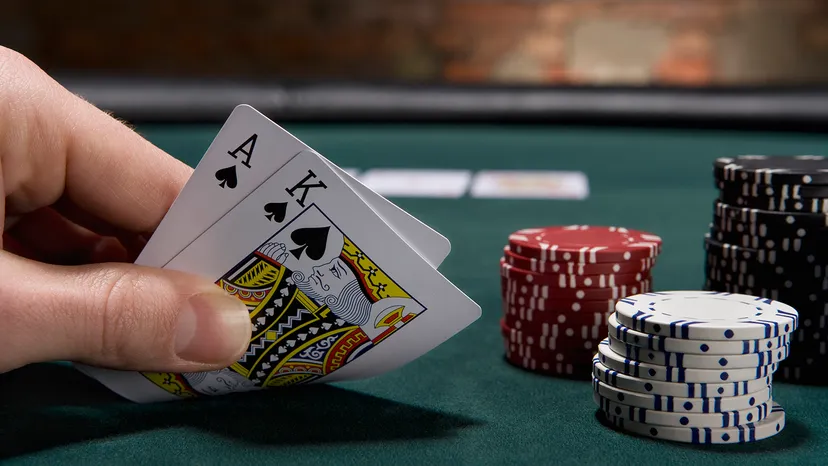Many table games will drain your bankroll quickly or bury you in rules that take hours to learn. Some tests your patience before you even figure out the basics.
Blackjack strikes a different balance. It’s approachable from the start, but still offers layers of strategy that make it worth your time.
Here’s why blackjack should be high on your list if you’re new to the casino floor.
A Clear Framework That Lowers the Learning Curve
One thing that makes blackjack so accessible is its structure. You’re playing against the dealer, not a table of seasoned players sizing you up. That detail alone removes a lot of the pressure you might feel in other games where bluffing and reading opponents are essential.
The objective is simple: reach 21 or get closer to it than the dealer without going over. But there’s more here than meets the eye.
Every hand is shaped by a predictable set of probabilities. Learning those odds is what separates casual players from those ready to play blackjack real money with a clear plan.
Unlike other games where the house edge stays hidden behind layers of complexity, blackjack puts it front and center. You know the dealer must hit on 16 and stand on 17. That clarity enables you to make informed decisions early, rather than guessing and hoping for the best.
One of the Lowest House Edges in the Casino
Many new players don’t realize how much the house edge varies from game to game. Slot machines and certain novelty tables can take a significant cut before you even settle in.
Blackjack, when played with basic strategy, sits at a house edge of around 0.5% in most casinos. That figure matters because it determines how far your bankroll goes over time.
A lower edge means you get more hands, more opportunities to adjust, and more chances to see how the game unfolds. This dynamic gives you better mileage from each buy-in compared to high-edge games.
One subtle detail that helps keep the edge low is the ability to make tactical choices after seeing your cards and the dealer’s upcard. Options like doubling down or splitting pairs let you capitalize on favorable situations.
Those tools don’t exist in many other table games, and they’re part of what makes blackjack uniquely rewarding for newcomers willing to learn the ropes.
Transparent Rules with Few Surprises
Casino newcomers often get tripped up by games with complicated side bets or shifting rules. Blackjack avoids most of that confusion.
The core mechanics stay consistent, whether you’re sitting at a crowded table or playing a heads-up game with the dealer. You’ll know precisely when you can hit, stand, double down, or split.
The predictable rhythm helps you focus on your decisions without second-guessing what’s allowed. Even the payout structure is straightforward. A natural blackjack pays 3:2, while other wins settle at 1:1.
The only variation you really need to watch for is whether the dealer hits or stands on a soft 17. That small distinction slightly changes the house edge, but it won’t derail your strategy if you pay attention. This clarity is a big reason why so many players make blackjack their first stop.
A Fast Pace That Doesn’t Overwhelm
Some casino games move so slowly that you can lose momentum between decisions. Others speed by so fast you barely have time to think. Blackjack strikes the right balance.
Each hand follows a steady sequence, giving you time to consider your options. You’ll see cards dealt, check the dealer’s upcard, and then decide how you want to play your hand.
The dealer’s actions are dictated by fixed rules, which keep the game moving without feeling rushed. This pace is perfect for beginners who want to stay engaged without getting flustered.
It also makes it easier to track patterns and get comfortable with the flow. Once you find your rhythm, you’ll start recognizing common situations and how to handle them efficiently.
Practical Skills That Transfer Across Variants
Another advantage of blackjack is how skills carry over. Single deck or multi-deck, you’ll rely on the same core decisions every hand. If you learn to read the dealer’s upcard and apply basic strategy, you’ll have a solid foundation that applies in any casino.
Even when you move into games with side bets or special payouts, the fundamentals stay the same. This continuity gives you an advantage over games that change dramatically from one table to the next.
Knowing when to double down, when to split, and when to stand will serve you well no matter how many decks are in play. This skill set also translates if you decide to explore online blackjack, where similar rules and probabilities apply.
Ready for the Table
Most casino games keep you guessing. Blackjack lays out the rules and lets you test your approach without smoke and mirrors. It combines skill and structure in a way that rewards thoughtful play instead of pure chance. The steady pace lets you build confidence without feeling rushed or overwhelmed. So, if you want to understand how casinos operate and make every wager count, blackjack is the smartest place to begin.
